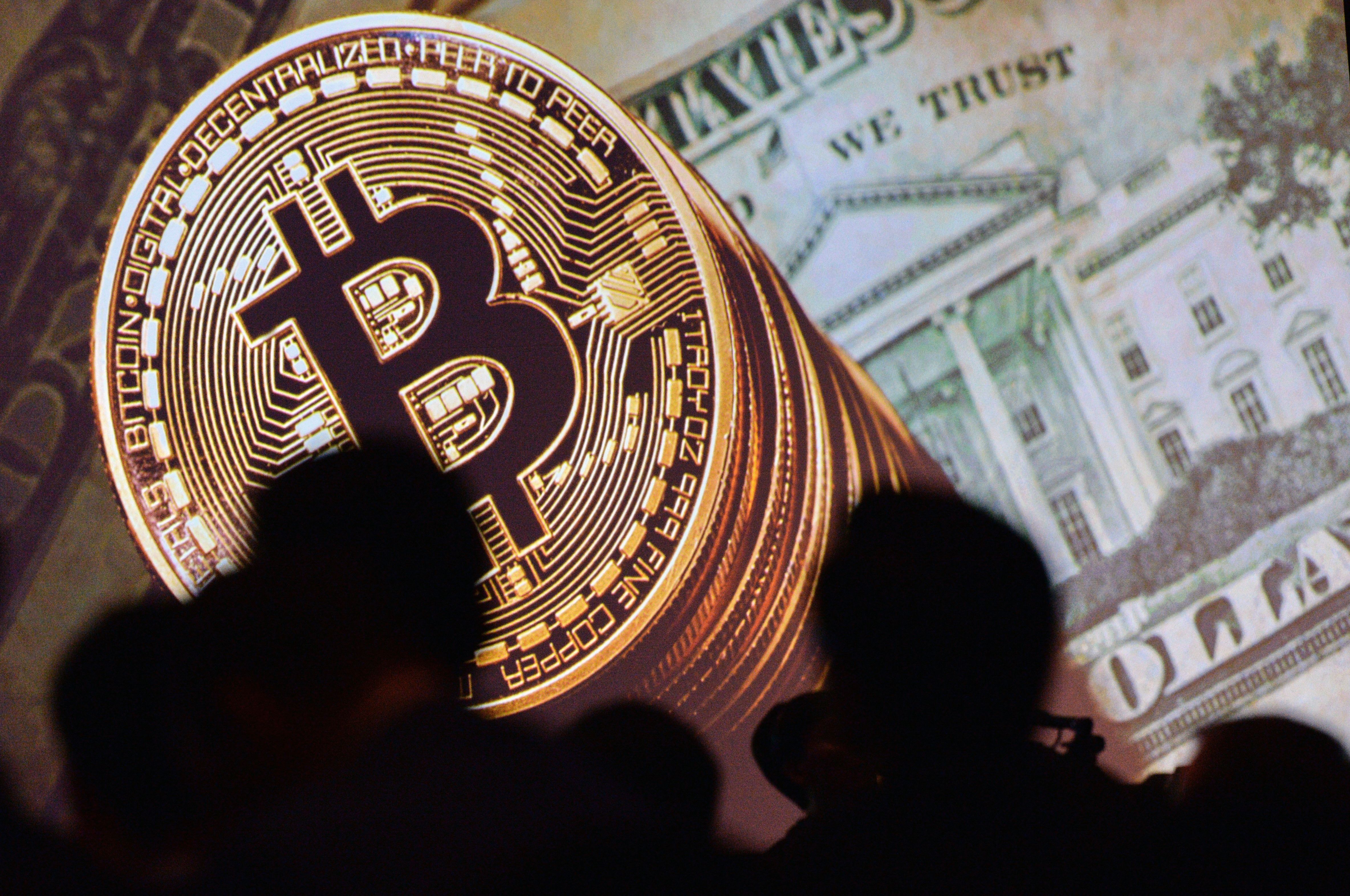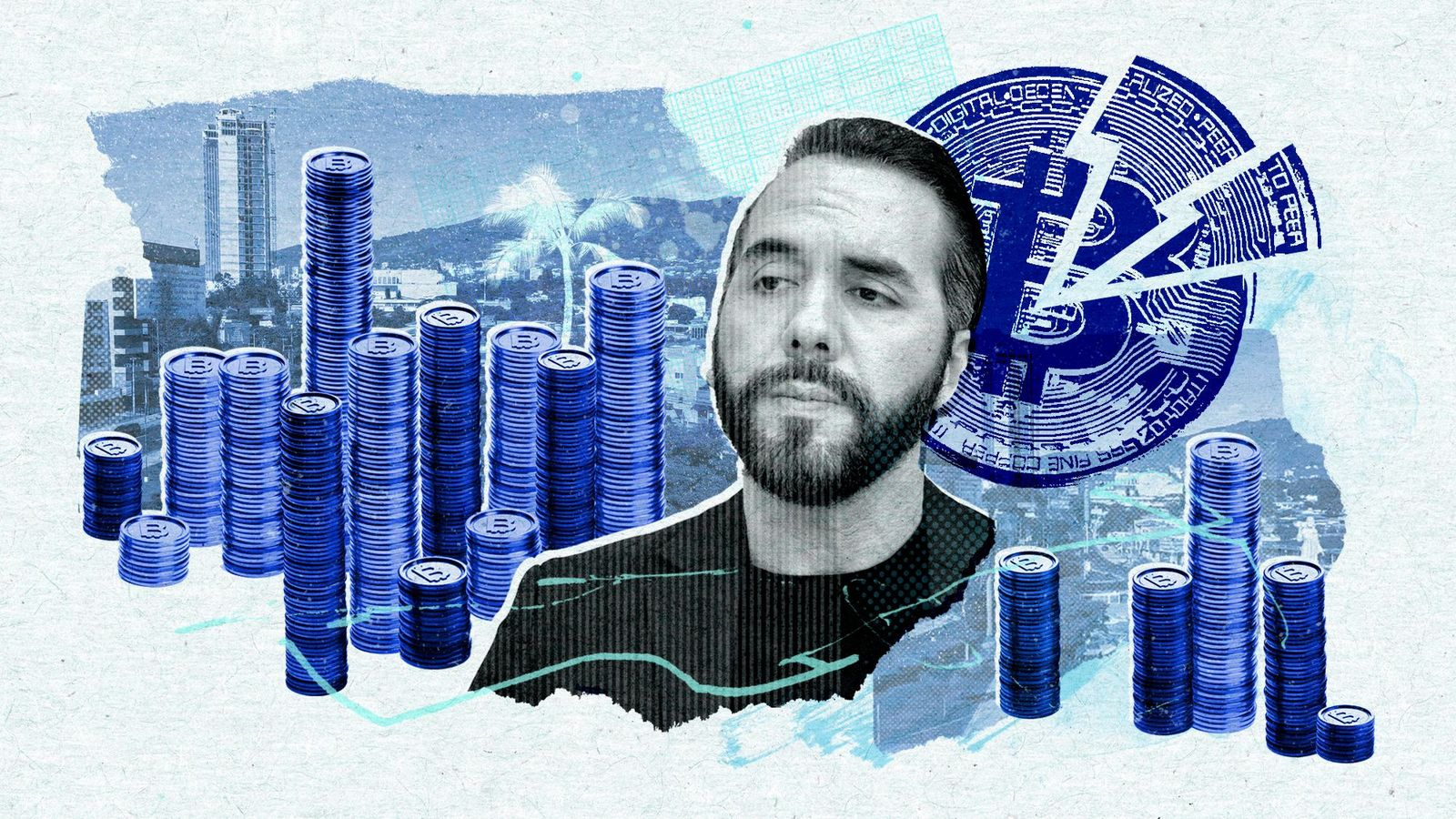What is bitcoin and how can you buy it?
Everything you need to know about the volatile cryptocurrency

A free daily email with the biggest news stories of the day – and the best features from TheWeek.com
You are now subscribed
Your newsletter sign-up was successful
A computer scientist who claims he invented bitcoin has won a landmark court case, allowing him to keep a cache of the cryptocurrency worth billions of dollars.
A jury in Miami found that Craig Wright, an Australian academic first linked to the development of the digital currency by Wired in 2015, should not be forced to hand his former business partner half of his digital assets.
The invention of the world’s most popular cryptocurrency was first described in a 2008 white paper, published under the pseudonym Satoshi Nakamoto. So does the decision mean Wright is Nakamoto – or does it cast more doubt over his true identity?
The Week
Escape your echo chamber. Get the facts behind the news, plus analysis from multiple perspectives.

Sign up for The Week's Free Newsletters
From our morning news briefing to a weekly Good News Newsletter, get the best of The Week delivered directly to your inbox.
From our morning news briefing to a weekly Good News Newsletter, get the best of The Week delivered directly to your inbox.
Uncertain origin
Nakamoto claims to have started developing the digital currency that would become known as bitcoin a year before the publication of the 2008 white paper. In August of that year the bitcoin.org website was registered, before the paper appeared a month later.
First circulated on a cryptography mailing list, the white paper – entitled Bitcoin: A Peer-to-Peer Electronic Cash System – described how the cryptocurrency would work. The first bitcoin software was released by Nakamoto in January 2009.
Embedded in the code of the original software was a headline from The Times: “Chancellor Alistair Darling on brink of second bailout for banks.” This has been widely interpreted as both a timestamp for the release and a critique of centralised banking systems.
A free daily email with the biggest news stories of the day – and the best features from TheWeek.com
The identity of the mysterious Nakamoto has never been publicly revealed, with some suggesting that the alias must represent multiple developers.
In 2013, Dan Kaminsky, a US security researcher who read the bitcoin code, told The Observer that there is “either a team of people” who worked on the cryptocurrency or “this guy is a genius”.
Laszlo Hanyecz, a US programmer who exchanged emails with Nakamoto, also told Wired that he “always got the impression it almost wasn't a real person”, adding: “I’d get replies maybe every two weeks, as if someone would check it once in a while.
“Bitcoin seems awfully well designed for one person to crank out.”
Who’s who?
For his part, Nakamoto has claimed to be a 37-year-old male who lived in Japan. But Wired said as early as 2011 that it always “seemed doubtful that Nakamoto was even Japanese”, adding that “his English had the flawless, idiomatic ring of a native speaker.”
Some speculated that “the name might be a sly portmanteau of four tech companies: SAmsung, TOSHIba, NAKAmichi, and MOTOrola”, the magazine added. Others believed that he represented “a team at Google, maybe, or the National Security Agency”.
In 2014, Forbes data security reporter Andy Greenberg suggested that the true developer could have been US computer scientist Hal Finney, one of the first people to use the bitcoin software other than Nakamoto.
In the same year, Newsweek reported that Dorian Prentice Satoshi Nakamoto, a Japanese American man living in California, whose birth name is Satoshi Nakamoto, could be the real Nakamoto.
Other names cited include computer scientist and legal scholar Nick Szabo, who was linked to the Nakamoto alias in 2013 by blogger Skye Grey, Finnish economic sociologist Dr. Vili Lehdonvirta and Irish cryptographer Michael Clear. Lehdonvirta and Clear were jointly named in 2011 by The New Yorker.
Wright is unusual among those linked to the alias in that he “has claimed that he is Nakamoto” since 2016, the BBC said, despite his claim being “disputed”.
He was first linked to the pseudonym in 2015, when Wired said he “either invented bitcoin or is a brilliant hoaxer who very badly wants us to believe he did”.
Around the same time, technology website Gizmodo published information obtained by a hacker that claimed Nakamoto was a joint pseudonym for Wright and Dave Kleiman, the former business partner with whom Wright would later enter a legal battle.
The family of Kleiman, who died in 2013, claimed the pair “created and mined the first bitcoin in existence, and that Wright had stolen it”, the BBC said.
The Miami jury rejected that claim, but ordered Wright to pay $100m for intellectual property infringement. So is that the end of the mystery?
Lingering doubt
According to CNN, Wright’s victory in the court battle means the computer scientist has “largely prevailed” in the dispute over the $57bn fortune.
He has been cleared “on nearly all issues in the dispute, including that half of the 1.1m bitcoin in dispute belonged to the family of Kleiman”, his former partner. Responding to the judgment, Wright that he had been “completely vindicated”.
But “the jury however found no evidence that the two created bitcoin”, The Wall Street Journal (WSJ) said, meaning he did not prove that he is Nakamoto.
If the jury had been convinced of Wright’s claim to have invented the cryptocurrency alongside Kleiman, he “could have been legally compelled to sell” a portion of his one million bitcoin “to help pay any monetary awards” to his former partner’s family.
Wright’s various claims that he truly is Nakamoto have been “dissected, and rejected, in the bitcoin community”, while his promises to prove his identity are yet to come to fruition, the WSJ added.
Rather than producing evidence, he has instead attempted to “litigate his claim”, filing various patents on bitcoin’s software and suing a podcast host “who publicly ridiculed his claim” to be the brains behind the digital currency.
All of this means that, for now, the mystery over Nakamoto’s true identity lives on.
-
 Will increasing tensions with Iran boil over into war?
Will increasing tensions with Iran boil over into war?Today’s Big Question President Donald Trump has recently been threatening the country
-
 Corruption: The spy sheikh and the president
Corruption: The spy sheikh and the presidentFeature Trump is at the center of another scandal
-
 Putin’s shadow war
Putin’s shadow warFeature The Kremlin is waging a campaign of sabotage and subversion against Ukraine’s allies in the West
-
 Why is crypto crashing?
Why is crypto crashing?Today's Big Question The sector has lost $1 trillion in value in a few weeks
-
 What are stablecoins, and why is the government so interested in them?
What are stablecoins, and why is the government so interested in them?The Explainer With the government backing calls for the regulation of certain cryptocurrencies, are stablecoins the future?
-
 'Wrench attacks' are targeting wealthy crypto moguls
'Wrench attacks' are targeting wealthy crypto mogulsThe Explainer The attacks are named for physical coercion that can be used to gain crypto passwords
-
 Crypto firm Coinbase hacked, faces SEC scrutiny
Crypto firm Coinbase hacked, faces SEC scrutinySpeed Read The Securities and Exchange Commission has also been investigating whether Coinbase misstated its user numbers in past disclosures
-
 The collapse of El Salvador's bitcoin dream
The collapse of El Salvador's bitcoin dreamUnder the Radar Central American nation rolls back its controversial, world-first cryptocurrency laws
-
 Javier Milei's memecoin scandal
Javier Milei's memecoin scandalUnder The Radar Argentinian president is facing impeachment calls and fraud accusations
-
 Bitcoin surges above $100k in post-election rally
Bitcoin surges above $100k in post-election rallySpeed Read Investors are betting that the incoming Trump administration will embrace crypto
-
 Donald Trump's bitcoin obsession
Donald Trump's bitcoin obsessionThe Explainer Former president's crypto conversion a 'classic Trumpian transactional relationship', partly driven by ego-boosting NFTs